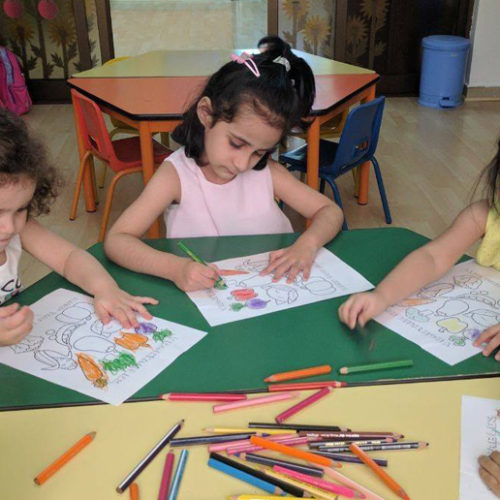Is play the key to unforced learning

Anjum Ali, Head of Kindergarten at Global Indian International School Dubai, looks at why play is an essential element to natural learning and how it creates children who love to discover independently.
Play is a crucial component of development in children. It incorporates critical problem-solving and learning skills, such as creativity, resilience, and collaboration. When children are encouraged to play in an enabling environment with the right resources, they can develop self-directed learning habits that foster curiosity for lifelong learning.
Discovery in education
School education should focus on a holistic approach, along with integrated lessons and activities that build knowledge through discovery. Play is necessary to bring out the best in children during their formative years. It’s important for schools to strive to create an environment where students can nurture their self-directed learning through an array of interesting activities, like role-playing, imagination games, interacting with plants and animals and much more.
In the classroom
At the core of any good educational program is play; it is essential to create an engaging and meaningful learning environment for young learners. By bringing elements of play into the curriculum, teachers will be able to foster curiosity and unforced learning. A play-based approach can be a powerful way of facilitating this as it involves both child-initiated and teacher-supported activities, effectively encouraging children to think outside the box and take their understanding to a higher level. The answer lies in allowing children to explore the world around them, through open-ended tasks that engage their inquisitive nature – fostering a life-long love of learning.
Flexibility in learning
Through this approach, routines should be set up so children feel secure as they move through instruction. At the same time, these routines should allow flexibility for meaningful exploration. The teacher’s role is to provide structure while also allowing freedom within those boundaries, guiding the students in the right direction but not being overly prescriptive. This type of teaching requires a deep understanding of child development, as well as an ability to build strong relationships with children in order to nurture their inquiry. The teacher must be able to observe and assess the children’s needs, and know when it is time for more direct instruction, while having the wisdom to know when it is best to take a step back and give kids room to explore on their own. It takes patience, practice and creative thinking, but paves the path for a greater sense of self-confidence among students as they successfully complete tasks and explore their own passions.
For instance, GIIS focuses on developing various areas of a student’s life, from creativity and compassion, to innovation and entrepreneurship, through carefully crafted programs and initiatives, designed to provide students with immersive learning experiences. It’s schools with discovery at their core that produce the happiest learners, so bear that in mind when it comes to your child’s education.
Ultimately, a play-based approach to education is an effective way of promoting inquiry-based learning while also creating a safe and supportive environment for students to thrive in. By allowing children the time and freedom to investigate, make mistakes and learn from them, they will develop key skills that will be essential for their future endeavours.
Image Credit: ShutterStock












Comments